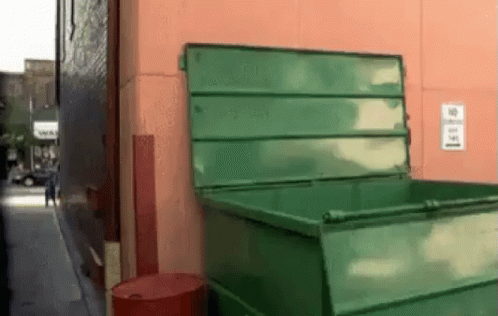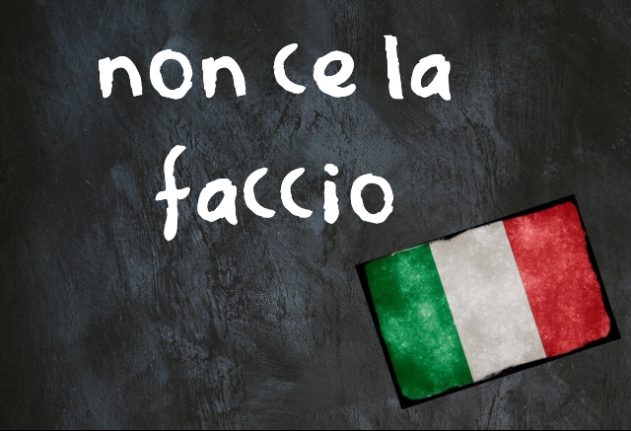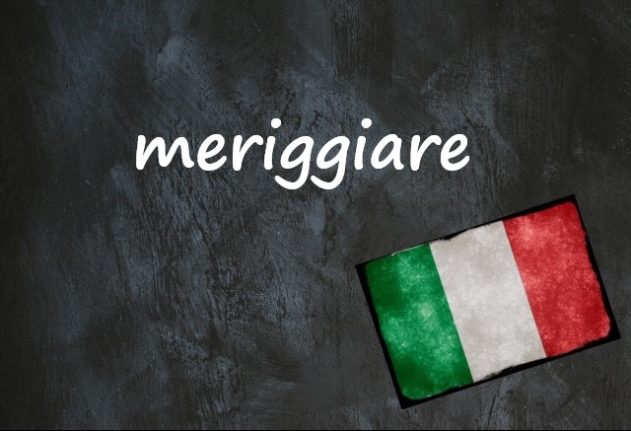Life in Italy can be tiring, especially if you’re spending a lot of time doing paperwork.
Or whether it’s simply an interminable conversation with the in-laws, meals with a seemingly infinite number of courses, or the evening strolls that are really just an excuse to gossip.
Today’s phrase is a great way to announce that you need a time-out: non ce la faccio (più), which means ‘I can’t take it (any more)!’

I learned the phrase aurally, by hearing it exclaimed by fed-up Italians, so when it first came to spelling it I had some trouble. Is it “ce” or “c’è”? And what’s that “la” doing there?
Some dictionary detective work led me to the infinitive: farcela, of which today’s phrase is just one possible conjugation. The verb means ‘to be able to’ or ‘to manage to’, based on fare (‘to do’) with the additions ce (‘there’) and la (‘it’) – which in this case, as far as anyone can tell, are only there to make it sound nice.
Temo di non farcela entro domani.
I’m afraid I won’t be able to do it by tomorrow.
Se volesse potrebbe farcela.
She could do it if she wanted to.
One of the most common ways you’ll encounter farcela is when someone uses it to ask ‘can you manage’ – “ce la fai?“
Ce la fai a passarmi quella scatola?
Can you manage to pass me that box?
NB: Remember to use fai when you’re talking to one person and fate when you mean more than one, and add the preposition a or ad before a verb that follows (‘can you manage to do x’).
Ce la fate ad arrivare in tempo per l’inizio del concerto?
Are you guys able to get to the concert in time for the start?
So naturally, if ce la faccio means ‘I can manage’, non ce la faccio means the opposite.
– Signora, posso aiutarla con la spesa?
– No grazie, ce la faccio da sola.
– Can I help you with your shopping, madam?
– No thank you, I can manage by myself.
Non ce la faccio più a vivere in questa paese! È troppo caotico!
I can’t go on living in this country any longer! It’s too chaotic!
Which version can you relate to?

See our complete Word of the Day archive here.
Do you have a favourite Italian word you’d like us to feature? If so, please email us with your suggestion.



 Please whitelist us to continue reading.
Please whitelist us to continue reading.
Member comments